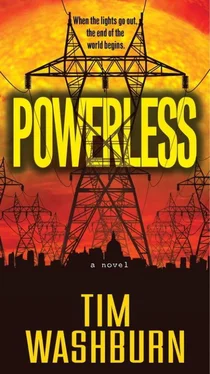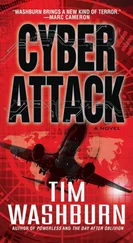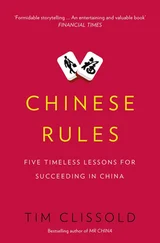“You feeling okay?”
His father brushes by him without a word. Zeke follows his progress through the shop and out into the sunshine. He appears to be walking with a slight limp.
Once his father is out of sight behind the ancient oak tree bulging onto the path from the shop to the house, Zeke grabs the walnut board and sights down the edge to check the crown. When gluing the boards edge to edge to form the table’s larger top, it’s important to alternate the crowns—the direction the grain of the wood is running—for stability. Zeke carries the piece of wood to the table saw to cut it to size. But before he can switch the saw on a scream pierces the quiet.
He pushes the board aside and races out of the shop. Rushing up the path, he finds his father crumpled on the ground with his mother kneeling over him. Zeke slides to his knees next to his parents. His father is unconscious. The dappled sunlight casts shadows across his father’s ashen face.
“What happened?” Zeke says as he scoots a little closer.
“I don’t know. I was looking out the kitchen window when I saw him just collapse.” Zeke’s heart breaks at the sight of tears streaming down her cheeks.
He reaches a hand out to his father’s neck and is shocked by the coldness of his skin. His fingers fumble for a pulse: thready but persistent.
Zeke gets to his feet. “I’m going to call an ambulance.” He runs toward the house, wishing, for the first time since he moved down here, that he had a cell phone.
The White House Situation Room
Wednesday, September 29, 10:25 A.M.
President Harris returns to the Situation Room and sits wearily in one of the leather chairs. The director of the National Security Agency hurries into the room and takes the seat next to the President. He leans in to whisper to the President.
“What?” the President shouts.
All heads turn in his direction. “When?” he says in a softer tone. President Harris sags against the back of the chair as the NSA director finishes the conversation and pulls away.
The room is silent and the participants of the videoconference are frozen in place. The President jerks to his feet and places both palms on the table. “I was just informed—”
The NSA director leans over to put a hand on the President’s arm. President Harris scowls and pulls his arm away.
“I think everyone in here has the necessary clearances, Charles.”
“Not everyone,” the NSA director says, nodding toward the front screen.
“Well, I just cleared them. The National Security Agency’s satellite surveillance system is dead in the water.”
A few surprised gasps.
“That means we have no way to track what our enemies are plotting. And God knows we don’t lack for enemies. I want a detailed plan to further minimize the damage.”
The President sits. “Dr. Blake, what the hell is going on? You do work for the Space Weather Prediction Center, don’t you?”
Sam Blake meets the challenge head-on. “Yes, sir. I’m not going to argue semantics with you, Mr. President, but we are hindered by the lack of working instruments. I will tell you for certain that we are being hammered by solar flares stronger than any since the advent of electricity. These solar flares could play havoc—”
“Hold up, Sam,” the President says before turning to the West Wing staffer who had materialized at his side. The young man, his suit coat buttoned and his red tie cinched tight to his throat, hands President Harris a single sheet of paper. The President puts on his reading glasses and quickly scans the contents as the room grows quiet. He lays the paper on the table, removes his reading glasses, and looks up at the monitor. “The good news continues. Most of Boston is without power. More solar flares, Sam?”
“Yes, and all this is a precursor to the much larger main storm. What’s happening in Boston and what’s already happened at the NSA is only the tip of the iceberg. The FAA is also reporting radio interference in the northern latitudes between ground stations and aircraft.”
President Harris turns to the director of homeland security. “Janice, what’s the plan?”
Janice Baker’s hair looks like a bird’s nest and the wrinkled white blouse she’s wearing is decorated along the front with a coffee stain reminiscent of a Rorschach blot. Although her outward appearance is sometimes considered frumpy, she has a razor-sharp mind and the ability to adapt to rapid changes with concise, bold moves. She moves to the edge of her seat and rests her forearms on the table. “Sir, this is so far outside of our bailiwick. Tracking terrorists or stopping a terrorist threat we can do, sir, but dealing with a presumptive natural disaster is beyond our scope. That being said, working in conjunction with FEMA and the state leaders of various emergency management agencies, we have developed a response plan. I’ll defer to Director Carter for an explanation of the specifics.”
The President scowls. “Janice, your agency is going to be responsible for many of the actions that need to be taken. I don’t want you taking a backseat.”
She lowers her eyes. “I understand, Mr. President. We’re ready to implement our portion of the plan.”
The large screen fills with the face of Donald Carter, director of FEMA. A black man in his late fifties, he has the fleshy face and sagging chin of a lifelong government employee. He is well respected for his compassion and intelligence throughout the various FEMA agencies scattered around the country.
“Mr. President, we’re in contact with a majority of the nation’s power suppliers. We’ve asked them to reduce capacity to the bare minimum. They are reluctant to reduce supply below acceptable levels at the present time, but hope to phase down throughout the day. But, sir, they are expressing doubts about whether a switched-off grid is any less vulnerable.” The director pauses for a sip of water.
“As for the airlines, we’re asking them to ground all future flights. They’re not real happy, believing it to be a temporary problem.”
“Mr. President,” a voice says, interrupting. He glances up at the screen. “Was that you, Major Garcia?”
“Yes, sir. I believe all flights should be grounded now. Those that are in flight should be landed at the closest available airport.”
The director of homeland security sits up erect in her chair. “We can’t strand these passengers hundreds or thousands of miles from their destinations—”
“Director Baker,” Major Garcia interrupts, “it’s better to be stranded than splattered all over the ground because the pilot can’t navigate or communicate.”
President Harris holds up both hands. “Don, you’ve talked to some of the airline reps. What do you think?”
“They’ll squeal like a stuck pig, sir. But Major Garcia might have a valid point.”
The President mulls over the options. “Janice, tell your people to give the airlines a three-hour window. That’ll allow most of the planes to reach their destination.”
She nods and excuses herself from the table to make the call.
President Harris turns back to the screen. “Don, what other good news do you have?”
“Communications are going to be a major problem, sir. There is a high probability that a majority of the satellites are vulnerable, just as has already happened with the NSA. There may not be a bird left in orbit, sir.
“In conjunction with the National Emergency Management Association, we’re trying to develop other lines of communication via high-frequency radio or some other type of system. I just completed a reread of the latest computer models of what might happen with such a large solar storm, and, sir, the outlook is dismal.”
Читать дальше












